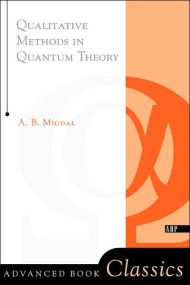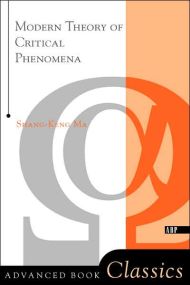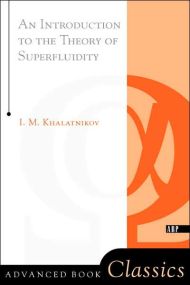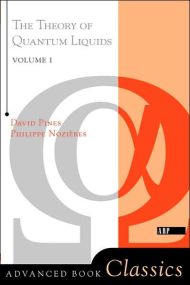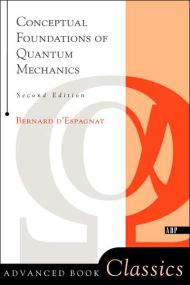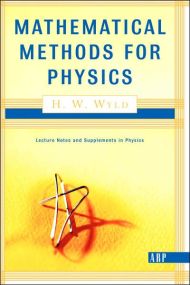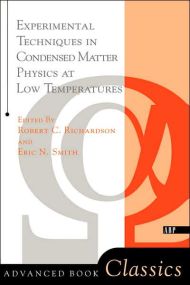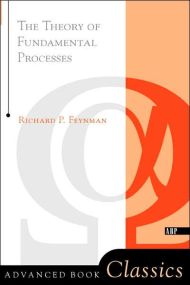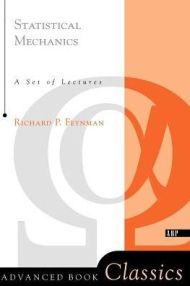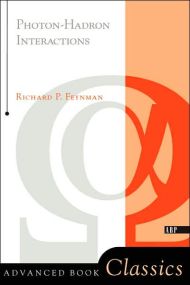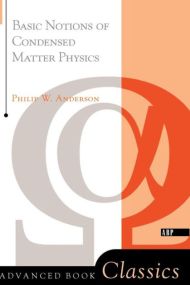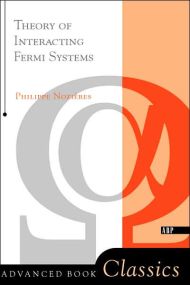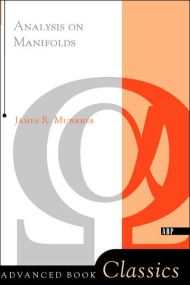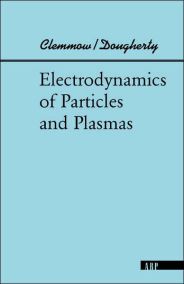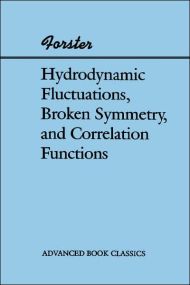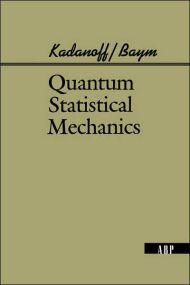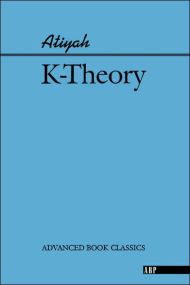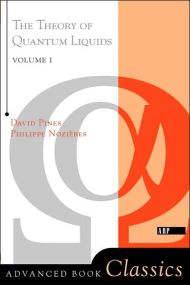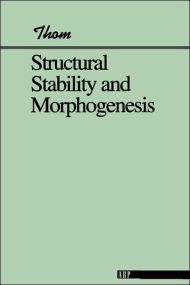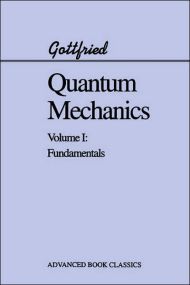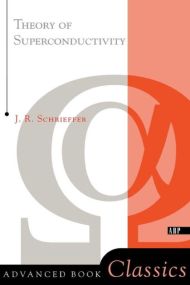Books in Order: Advanced Books Classics by Murray Gell-mann
Titles List
-
This monograph presents thirty research papers dealing with the classification of strongly interacting particles and their interaction according to the eightfold way. In each chapter the authors' commentary introduces the reprints. Read More
-
A classic from 1969, this book is based on a series of lectures delivered at the Les Houches Summer School of Theoretical Physics in 1955. The book outlines a general scheme of quantum kinematics and dynamics. Read More
-
This unique book, written by a leading Soviet theorist, is not a textbook of quantum mechanics but rather a compendium of the "tricks of the trade"-the methods that all practicing theoretical physicists use but few have set down in writing. Read More
-
An important contributor to our current understanding of critical phenomena, Ma introduces the beginner--especially the graduate student with no previous knowledge of the subject-to fundamental theoretical concepts such as mean field theory, the scaling hypothesis, and the renormalization group. He… Read More
-
A classic from 1965, this book covers the main aspects of the theory of quantum liquids, including the elementary excitation spectrum, hydrodynamics, and kinetic phenomena. The book requires no special training and assumes only general knowledge of the fundamentals of… Read More
-
Originally published as two separate volumes, The Theory of Quantum Liquids is a classic text that attempts to describe the qualitative and unifying aspects of an extremely broad and diversified field. Volume I deals with ‘normal' Fremi liquids, such as… Read More
-
Conceptual Foundations of Quantum Mechanics provides a detailed view of the conceptual foundations and problems of quantum physics, and a clear and comprehensive account of the fundamental physical implications of the quantum formalism. This book deals with nonseparability, hidden variable… Read More
-
This classic book helps students learn the basics in physics by bridging the gap between mathematics and the basic fundamental laws of physics. With supplemental material such as graphs and equations, Mathematical Methods for Physics creates a strong, solid anchor… Read More
-
This text continues to fill the need to communicate the present view of a solid as a system of interacting particles which, under suitable circumstances, behaves like a collection of nearly independent elementary excitations. In addition to introducing basic concepts,… Read More
-
Drawn from the author's introductory course at the University of Orsay, Superconductivity of Metals and Alloys is intended to explain the basic knowledge of superconductivity for both experimentalists and theoreticians. These notes begin with an elementary discussion of magnetic properties… Read More
-
This book explains the fundamental concepts and theoretical techniques used to understand the properties of quantum systems having large numbers of degrees of freedom. A number of complimentary approaches are developed, including perturbation theory; nonperturbative approximations based on functional integrals;… Read More
-
An extension of Dr. Schwinger's two previous classic works, this volume contains four sections in addition to the previous sections of Electrodynamics II, which were concerned with the two-particle problem, and applications to hydrogenic atoms, positronium, and muonium. Read More
-
This classic book (volume two of three volumes) is almost exclusively concerned with quantum electrodynamics. As such, it is retrospective in its subject matter. The topics discussed range from anomalous magnetic moments and vacuum polarization, in a variety of applications,… Read More
-
This classic, the first of three volumes, presents techniques that emphasize the unity of high-energy particle physics with electrodynamics, gravitational theory, and many-particle cooperative phenomena. What emerges is a theory intermediate in position between operator field theory and S-matrix theory,… Read More
-
This practical book provides recipes for the construction of devices used in low temperature experimentation. It emphasizes what works, rather than what might be the optimum method, and lists current sources for purchasing components and equipment. Read More
-
In these classic lectures, Richard Feynman first considers the basic ideas of quantum mechanics, treating the concept of amplitude in special detail and emphasizing that other things, such as the combination laws of angular momenta, are largely consequences of this… Read More
-
Physics, rather than mathematics, is the focus in this classic graduate lecture note volume on statistical mechanics and the physics of condensed matter. This book provides a concise introduction to basic concepts and a clear presentation of difficult topics, while… Read More
-
In these classic lectures, Feynman analyses the theoretical questions related to electron and photon interactions at high energies. These lectures are based on a special topics course taught by Feynman at Caltech in 1971 and 1972. The material is dealt… Read More
-
This classic work presents the main results and calculational procedures of quantum electrodynamics in a simple and straightforward way. Designed for the student of experimental physics who does not intend to take more advanced graduate courses in theoretical physics, the… Read More
-
Graduate students in both theoretical and experimental physics will find this third edition of Intermediate Quantum Mechanics, refined and updated in 1986, indispensable. The first part of the book deals with the theory of atomic structure, while the second and… Read More
-
Basic Notions of Condensed Matter Physics is a clear introduction to some of the most significant concepts in the physics of condensed matter. The general principles of many-body physics and perturbation theory are emphasised, providing supportive mathematical structure. This is… Read More
-
This book provides a detailed exposition of field theoretical methods as applied to zero temperature Fermi liquids. Special attention is paid to the concept of quasiparticles in normal Fermi liquids. The book emphasizes methods and concepts more than specific applications. Read More
-
A readable introduction to the subject of calculus on arbitrary surfaces or manifolds. Accessible to readers with knowledge of basic calculus and linear algebra. Sections include series of problems to reinforce concepts. Read More
-
From the Preface:"The purpose of this book is to present and apply a language and to discuss methods which make it very convenient to exploit such analogies, and which are uniquely suited to describe and explain non-equilibrium phenomena in a… Read More
-
Originally published as two separate volumes, The Theory of Quantum Liquids is a classic text that attempts to describe the qualitative and unifying aspects of an extremely broad and diversified field. Volume I deals with ‘normal' Fremi liquids, such as… Read More
-
This classic text provides a comprehensive exposition of the concepts and techniques of quantum mechanics. The phenomena treated are sufficiently simple to allow the student to readily assess the validity of the models so that attention is not deflected from… Read More
-
Theory of Superconductivity is considered one of the best treatment of the field. This monograph, by Nobel Prize-winning physicist J. Robert Schrieffer, has been reprinted because of its enduring value as an introduction to the theory of superconductivity. The fundamentals… Read More
By the Author
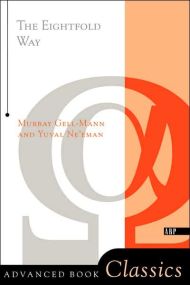
The Eightfold Way
By clicking ‘Sign Up,’ I acknowledge that I have read and agree to Hachette Book Group’s Privacy Policy and Terms of Use

